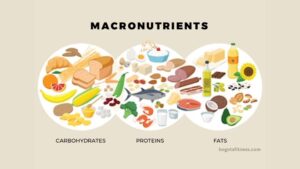Dining out at parties or restaurants may be a lot of fun. But maintaining your wellness and health objectives might be challenging at times.
Seasonal celebrations, after-work drinks, and date evenings seem to come around and entice you back to bad habits just as you are starting to follow a healthy diet.
Banner Health registered dietician Gina Thayer is happy to provide advice on how to make healthy, fulfilling decisions while having fun and being happy.
1. Plan ahead
Being prepared is one of the secrets to a successful eating out experience. Spend a few minutes organizing your approach.
Regarding dining out: You may check out a lot of restaurants’ internet menus prior to visiting. Knowing the menu ahead of time allows you to make well-balanced, delectable selections.
Instead than letting your judgments be dictated by impulse, this allows you to recognize healthier options and make well-informed selections, according to Thayer.
For get-togethers: If you aren’t sure what will be served, make your go-to healthy recipe or bring something enticing yet healthy so you always have a delicious dish to choose from.
Before you leave the house, think about having a small, wholesome snack to help control your hunger and avoid overindulging.
2. Control portions
Restaurant portions are renowned for being enormous. They frequently suffice to feed many people! Additionally, despite the delicious cuisine, these large quantities may have higher amounts of fat, salt, and calories than home cooking.
“Think about splitting a dish with a friend or immediately requesting a to-go box so you can pack half the meal before you start eating,” suggested Thayer. “This immediately reduces the amount of food you eat.”
Be mindful not to overindulge when attending social events. Start with tiny portions of items that catch your eye and work your way up to larger portions of your favorites. Try to load up half of your plate with vibrant fruits and vegetables.
3. Mindful eating
According to Thayer, mindful eating is all about paying attention to what you’re eating, listening to your body, and recognizing your signs of hunger and fullness.
You already know that there will be larger portions and more calories, so when you eat, pay attention to your body. To ensure that every mouthful is enjoyed, take tiny bits and set your fork down in between. Then, rather than when you’re satisfied and at ease, stop.
“Aim to recall an instance when you overindulged and experienced unhappiness due to being overfull,” said Thayer. “Keep in mind that you can always enjoy this meal again at a later date. While you’re still enjoying it, stop.
Also Read: EAT HEALTHY ON A BUDGET: PRACTICAL TIPS
4. Watch for buzzwords
Items with the labels “creamy,” “fried,” “battered,” or “crispy” should be avoided. These are frequently signs of increased fat and calorie content.
According to Thayer, “search for foods that are baked, boiled, broiled, slow-cooked, poached, or grilled as these terms use lower fat cooking methods.”
Additionally, salad dressings may be a hidden calorie factory. Request side salad dressings or go for olive oil-based vinaigrettes.
5. Limit alcohol
Alcohol can increase calorie intake and cloud your judgment while making eating decisions. Around 230 calories are found in one cup of red wine!
Thayer advised choosing a light beer or consuming something that is primarily soda water. “Avoid blended drinks with a lot of sugar, like daiquiris or margaritas.”
After each alcoholic beverage, sip a big glass of either still or sparkling water. This will assist you in staying hydrated and reducing the amount of alcohol you consume during the evening.
6. Satisfy your sweet tooth
“Complete your meal with a small amount of dessert rather than delaying it for hours,” said Thayer. “You can indulge your sweet tooth without going overboard with this.”
Eat in tiny portions, enjoying each one. To slow down in between bites, sip water. Desserts can also be shared by the entire table or with a companion. A bite or two can often suffice to sate desires.
7. Enjoy conversations
To reduce mindless eating, place yourself as far away from the food as possible. Thayer advised, “Cover your plate with a napkin or ask the server to take it away.”
Recall that socializing is just as important as dining out. Instead than concentrating just on the food, enjoy the companionship of others.
8. Be kind to yourself
Recall that sometimes indulging is acceptable. When faced with a limited number of healthful options, select the finest one and savor it guilt-free. In the long run, it all comes down to balance.
Takeaway
Finding a balance between indulging in delectable meals and adhering to your nutritional objectives is the key to healthy eating. You can enjoy memorable times without jeopardizing your wellbeing if you prepare ahead, make deliberate decisions, and prioritize moderation.
Dining out is more than just enjoying cuisine when done with friends and family; it’s also a chance to bond, celebrate, and make lifelong memories.




